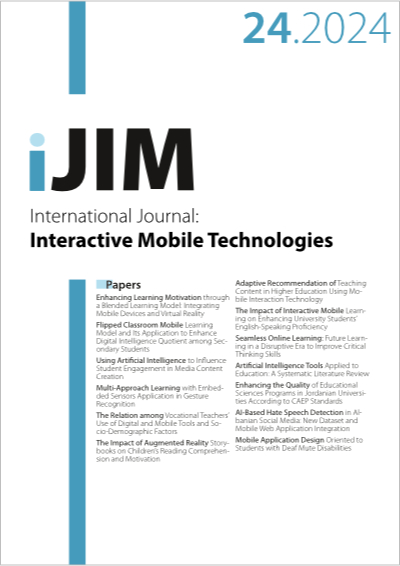Using Artificial Intelligence to Influence Student Engagement in Media Content Creation
DOI:
https://doi.org/10.3991/ijim.v18i24.51911Keywords:
Technology learning Application, ,Virtual reality, Behavior intention, Artificial intelligence, Media Content CreationAbstract
Integrating artificial intelligence (AI) into educational environments transforms how students learn and engage in creative activities. The main purpose of this study is to examine how AI-enhanced learning experiences influence students’ engagement in media content creation (MCC). The study identifies key factors that drive or hinder students’ involvement in media-related activities and explores how AI-based tools and technologies can enhance learning outcomes and foster creativity in content creation. The results indicate a positive impact resulting from linking AI application factors to content creation. This study employs a quantitative methodology by distributing a questionnaire to university students. An application was developed as part of the study to help students enhance their media creation skills using AI techniques. The study highlights how AI factors influence and attract students to engage in content creation.
Downloads
Published
How to Cite
Issue
Section
License
Copyright (c) 2024 Ghaliya Muslem ALFarsi, Waleed Mugahed Al-Rahmi, Ragad Tawafak, Ibrahim Y aussef Alyoussef, Ayad Aldaijy, Abdulrahman Alshimai

This work is licensed under a Creative Commons Attribution 4.0 International License.



